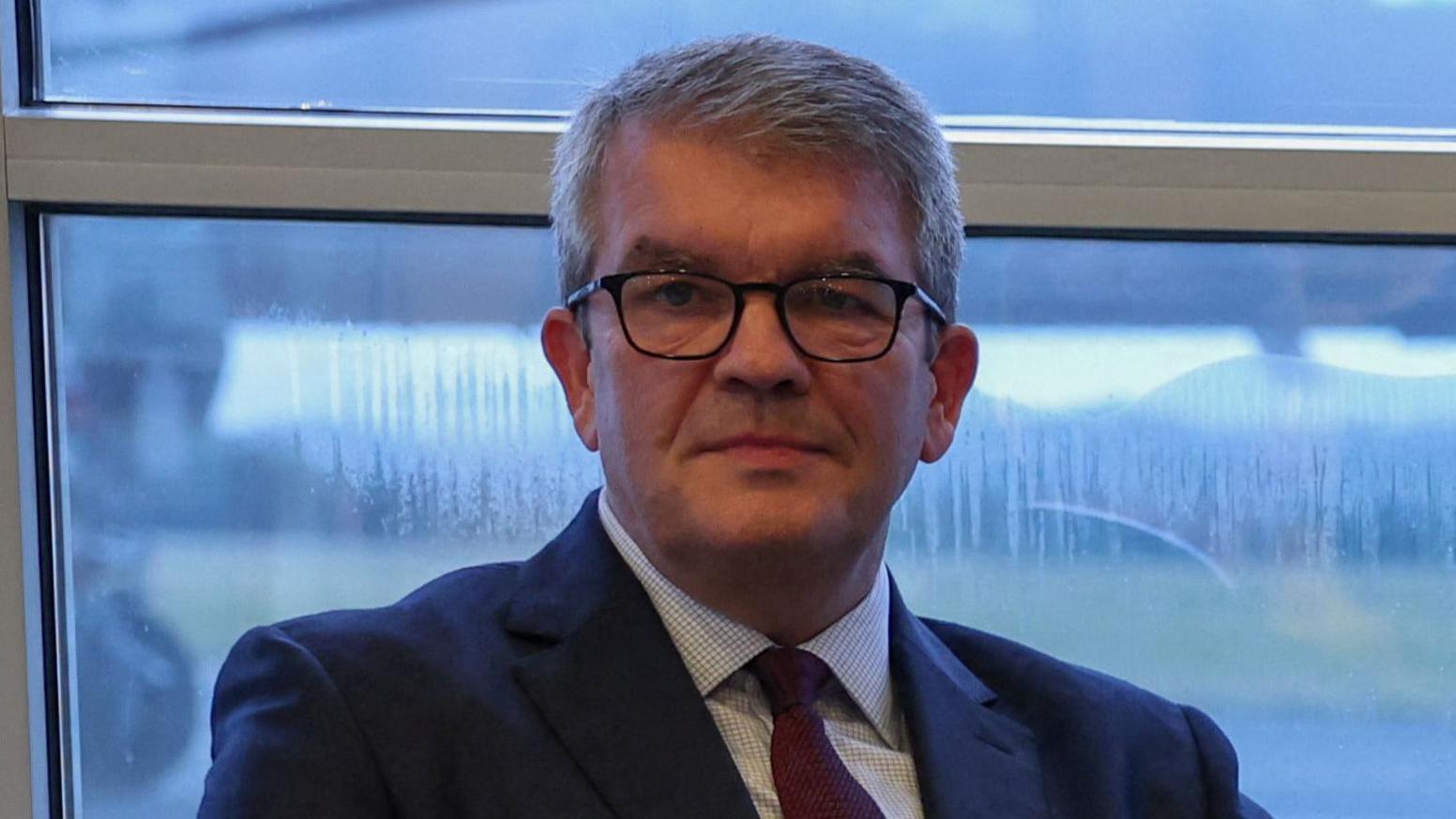We must chip away at smuggler business models - border chief

- Published
The UK's first border security commander has pledged to keep "chipping away" a people smugglers' business models until they are no longer profitable.
In his first broadcast interview since taking up the job in September, Martin Hewitt said there was no "simple answer" to stopping people crossing the Channel in small boats.
But he told BBC Radio 4's Today programme that working with other countries to intercept people before they reached the coast of France and undermining the business models of smuggling gangs was crucial.
More than 33,000 people have crossed the Channel in small boats so far this year, which is higher than the total figure for the previous year.
We must stop smuggling gangs before they act - Starmer
- Published4 November 2024
Ex-police chief to lead efforts to tackle small boats
- Published15 September 2024
After winning power, Labour formed a new Border Security Command, bringing together the National Crime Agency (NCA), intelligence agencies, police and border force officials to try and tackle the issue.
Mr Hewitt, a former police chief, was appointed to lead the command in September.
He acknowledged that stopping people-smuggling gangs was "an incredibly complex and challenging problem" but said he was aiming to disrupt their business models.
"We will keep chipping away and undermining their business to the point where that is no longer viable and no longer profitable," he told the BBC.
As an example, he pointed to the arrest of a man in the Netherlands suspected of being a significant supplier of boats and engines to smugglers, following a joint investigation by the UK's NCA with Dutch and Belgian police.
"We know that small boat crossings are moving from their source country through many other countries," he said.
"And it's absolutely critical if we're going to be successful, for us to be projecting our activities into those countries and working really closely with the governments, with the law enforcement agencies in those countries, to stop people at the point well before they reach the northern coast of France."
The government has also said it wants to use counter-terrorism tactics to tackle people-smuggling gangs, with new powers to trace suspects' movements and freeze their bank accounts.
The Conservatives have criticised the government's approach, arguing there needs to be a deterrent to stop migrants crossing the Channel.
After winning power, Prime Minister Sir Keir Starmer scrapped the previous Tory government's plan to send some migrants to Rwanda, which aimed to discourage crossings.
When the new Border Security Command was announced, Conservative former home secretary James Cleverly suggested it was a "gimmick" and accused Labour of making up a job that already existed.
Mr Hewitt rejected this, saying that for the first time all the agencies and organisations involved in securing the country's borders were working together.
"This has not happened before, with one department, one unit and one person having the responsibility to cohere and to coordinate the system," he added.